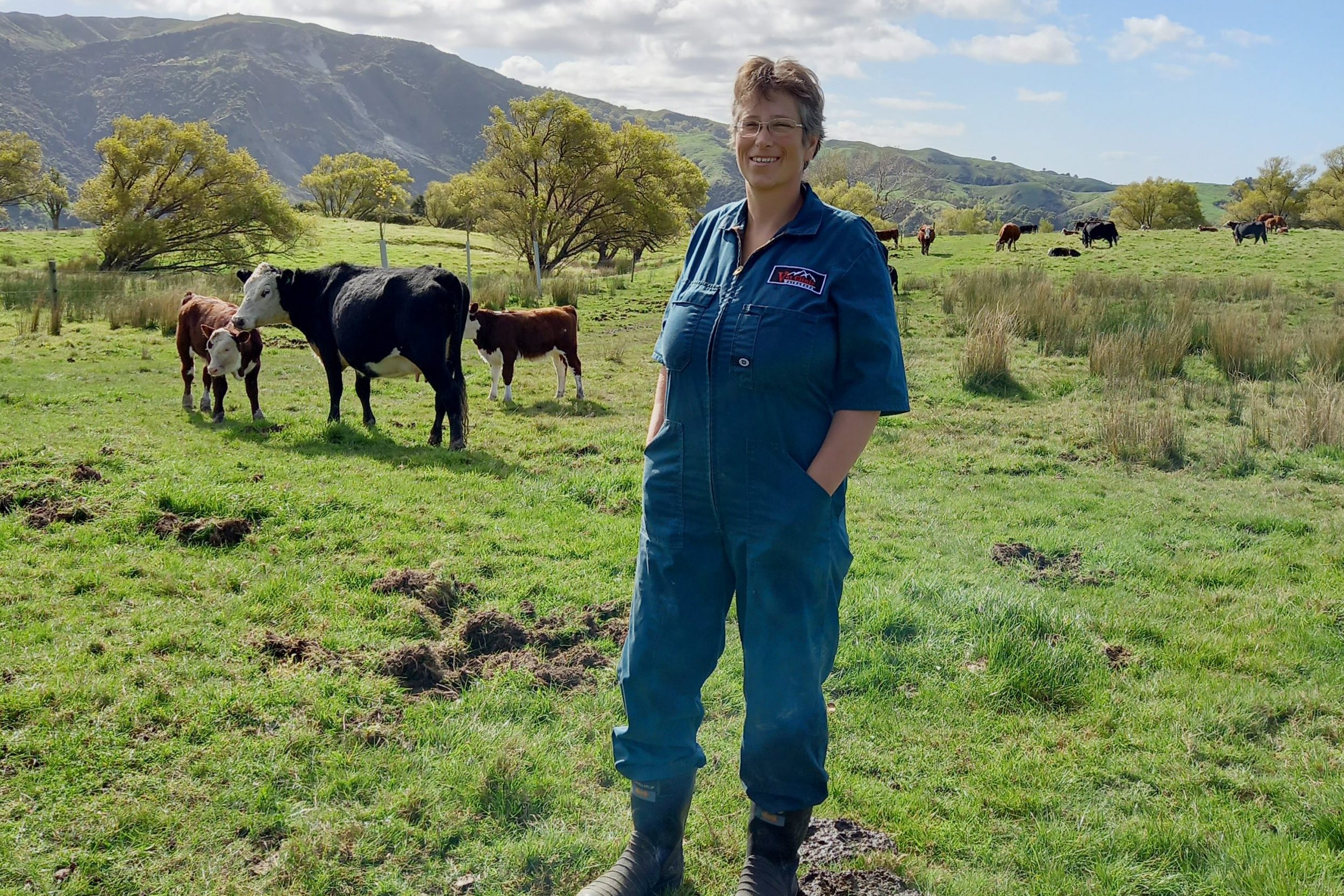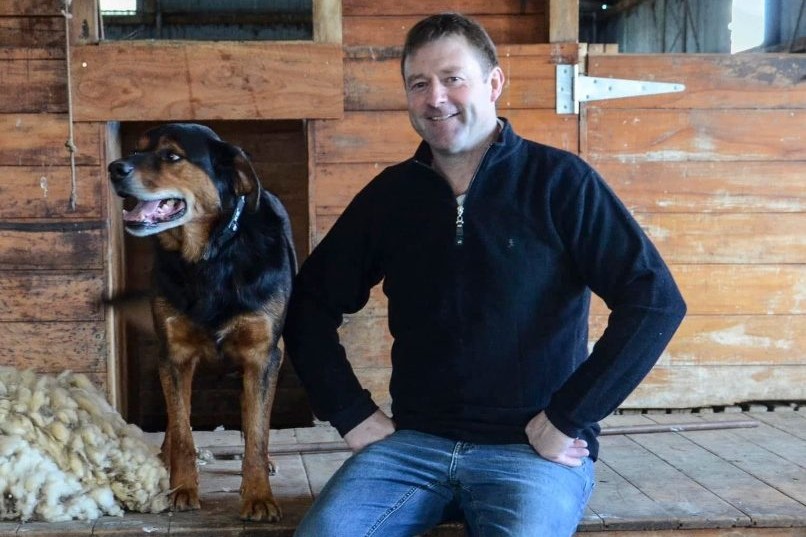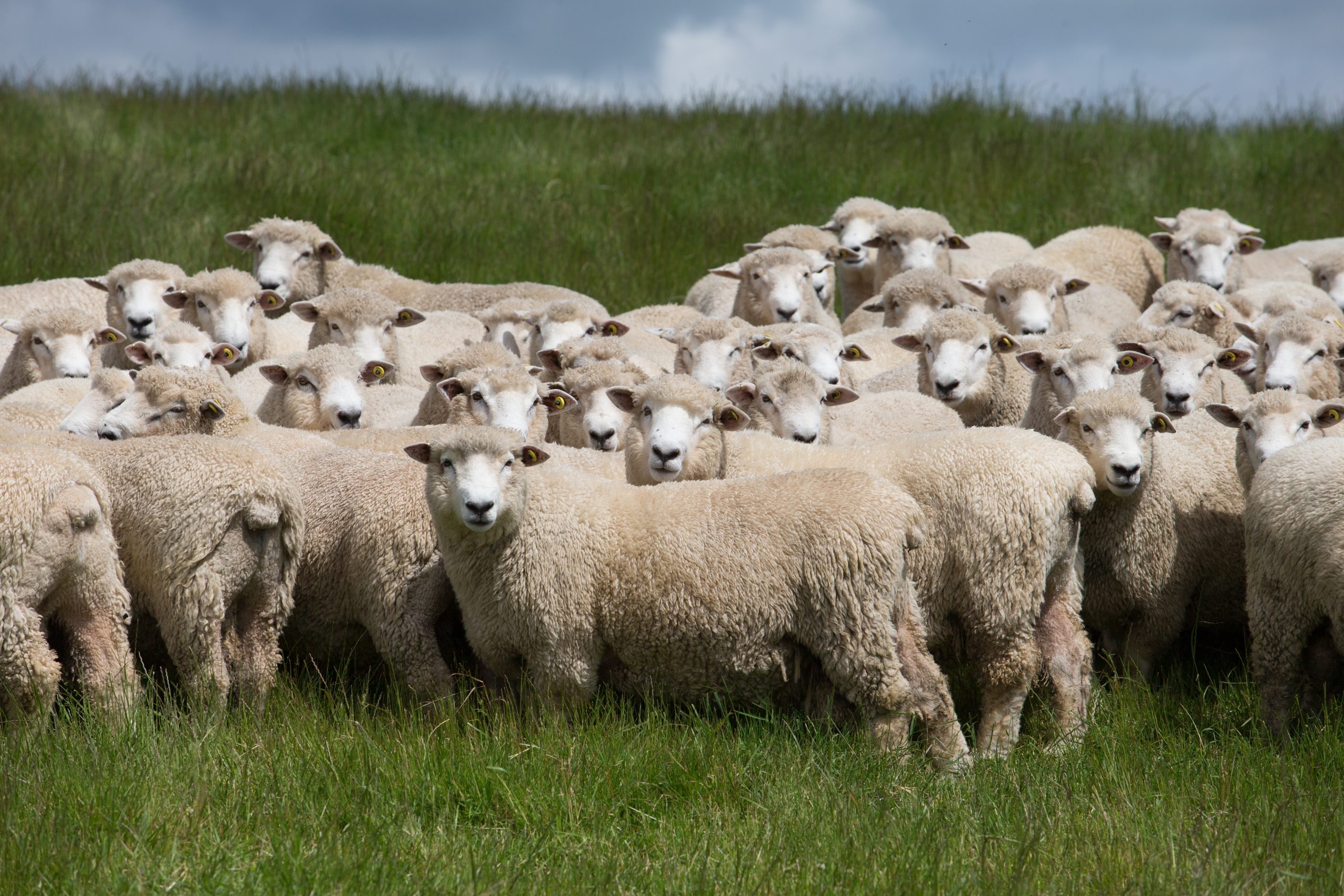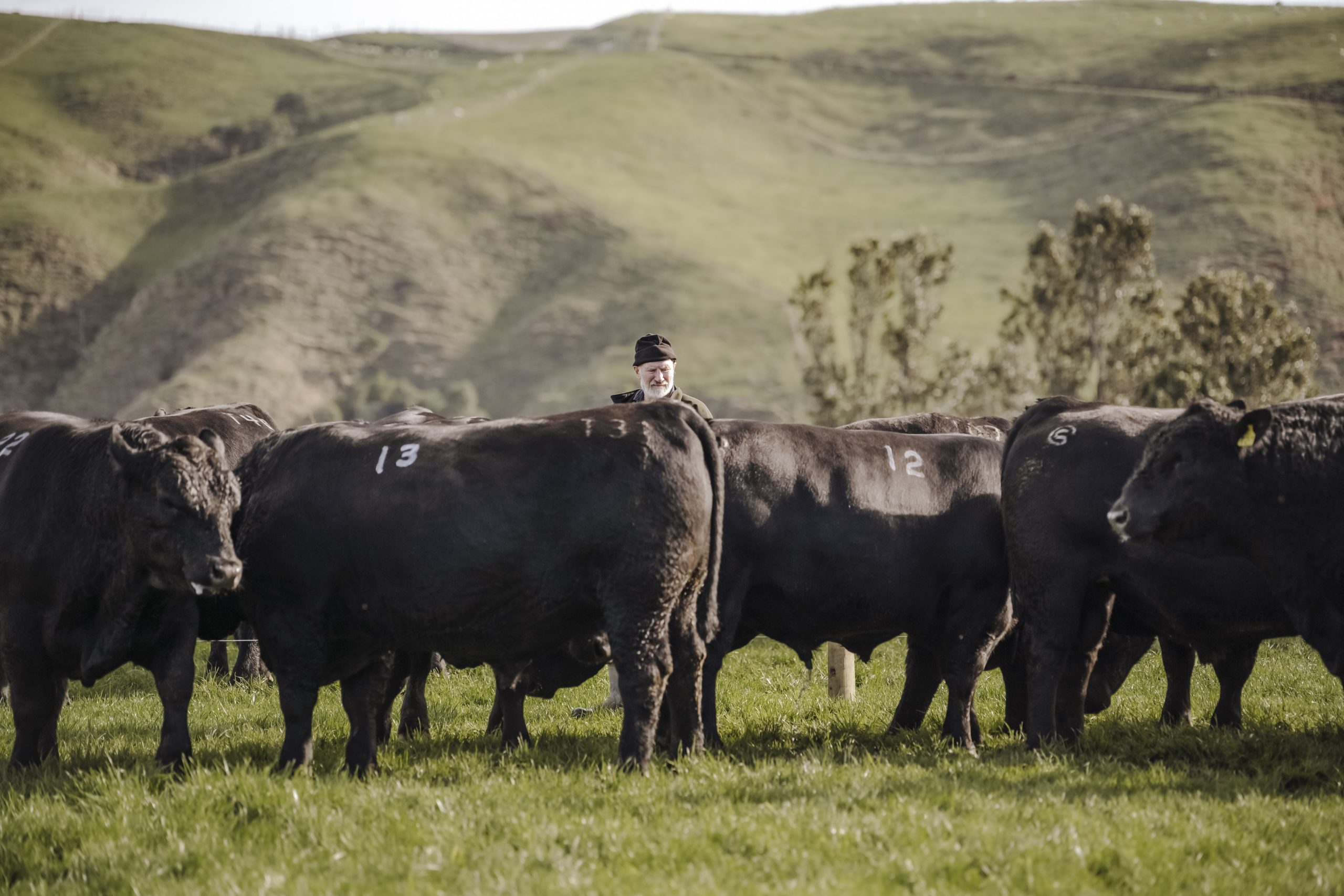Becs Mahoney, former Black Fern, now international rugby referee, rears up to 3000 lambs each year for Spring Sheep Milk Co as part of her farming duties. Sheryl Haitana reports. Photos by Brad Hanson.
Rearing young stock is a key part of any successful farming business and a task that requires dedication and skill, says Becs Mahoney.
“I think rearing young stock is a specialty, it’s very time consuming and you have to maintain strong attention to detail.”
Rearing up to 3000 lambs/year for Spring Sheep Milk Co sees Becs and husband Luke working from 5am to 10pm most nights for a significant part of spring.
In a normal rugby season she spends 30 hours a week fitness training as well as reviewing/pre-viewing games, and development – which is often done at all hours of the night.
Becs typically will start the morning in the lamb sheds, drive or fly to referee a game, and be back in the sheds later that night. However, the hard work and long hours are palatable when it’s something you enjoy, she says.
“I absolutely love rearing lambs and the rugby is just fun. For me rugby is good head medicine, a chance to get off farm and out of the business for a few hours, to be able to mix with different people and be challenged at a different level.”
The former Black Fern, who refereed a Ranfurly Shield match last year, was the first woman to referee in the Mitre 10 Cup, the first female assistant referee in Super Rugby early this year and was going to referee two Women’s Six Nations’ test matches this year.
However, with Covid-19 she has currently lost her contract with NZ Rugby and will wait to see if there are opportunities later this year with Mitre 10 and the Women’s Rugby World Cup next year.
She feels fortunate to have farming as her main business and income.
“Farming is forefront of our lives anyway.
Rugby has always been a cool way to see the world and get a bit of enjoyment. But farming is my business, my background and is where we can help other people.”
Raised on a sheep and beef farm at Eketahuna, Becs went to work on the family farm straight after high school. She got into calf rearing on a large scale with her parents, rearing up to 2000 calves, predominantly Friesian bulls.
She was fortunate enough to meet a local farming boy, Luke, and the couple have slowly grown their farming business over the last 15 years. Luke has his own business dagging 500,000 sheep a year, and the couple have their own contracting business on the side.
They were approached by Spring Sheep Milk Co a few years ago to rear lambs because of their experience rearing large numbers of young stock. The company has four farms currently and another three new suppliers have signed up this season.
“They’re an innovative and collaborative business to work with,” Becs says.
“It works for us and works for them. Their farmers work hard to get milk out of their sheep and we work hard to grow the best young stock for them to work with.”

The four-day old lambs are picked up or delivered from the farms in Taupo. The lambs travel really well in a purpose-built trailer – they curl up in their boxes and go to sleep, Becs says.
When they arrive the lambs are given Biostart to settle their stomachs and put in pens of 40 to be trained on the auto DeLaval feeders. A coloured chalk marking system is used to identify lambs once they are drinking off the feeder. Most achieve that within the first 24 hours, says Becs. “Sheep are really intelligent and follow each other. Having them in small pens, it’s not hard for the lambs to find the teats and teach themselves.”
The feeders can supply up to 200 lambs.
Each pen of 40 lambs has four teats.
Compared with calves, lambs can be easier to rear because they don’t suffer from the same diseases and their survivability rate is around 90%, higher than the traditional hill country farm system.
“We don’t get the nasty crypto or salmonellas etc. But lambs sometimes get pneumonia. We have a couple of pens in each shed with heat lamps for any smaller lambs to curl up under.”
Becs and Luke have two sheds, 2000m2 and 1000m2. The pens have 30cm of sawdust covered by a geotec felt that is used in roading and lets moisture through but not back up. They put fresh shavings on top of the bedding every day along with stellosan, which helps minimise ammonia and any “bugs”.
“We rake out every pen daily and put fresh shavings down. That will sound really intensive, but we get into every pen and handle every lamb every day. When you’re working with big numbers it’s that attention to detail you need to have.”
All lambs have access to fresh water with troughs cleaned out daily, a high protein grain mixture and unlimited milk on the feeders. Each lamb will go through 14-16kg of milk powder.
All lambs are weighed when they arrive and subsequently every 14 days for the first 12 weeks with the aim of getting them to 17-19kg by weaning at six weeks of age.
After weaning, lambs are offered cut and carry grass along with their meal, and at nine weeks they have external access to paddocks.
“We’ve set our new shed up as a miniature farm with little paddocks that function well with the shed. As the lambs get bigger they expand into bigger paddocks onto red clover and chicory mixes.
“Lambs come back into the shed for their meal. They love being inside, on cold days or on hot days. They have the best of both worlds.”
The lambs are grown out and managed through until they are scanned and ready to go back to the Spring Sheep farms for lambing.
The lamb rearing team includes Becs and Luke, four full-time women, and Becs’ parents, Neal and Shirley Hull.
“Our staff are the glue to the success of our business, we challenge them to have a go at everything. We have a strong team culture with a range of skills, my rugby mates Paige Walker, Sam Tipene, Tutz and Aunty Carol have embraced the processes that make the rearing a success.”
Becs and Luke have two daughters, Amber, 12, and Harper, 7.
“We wouldn’t be able to do what we do without Mum and Dad. Dad and I have the same vision for working with young stock and Mum has always looked after the girls and makes sure the team is always happy and things are running smoothly.”
As farmers, Becs and Luke think it’s a good move to have diversity in their business, which is why they’ve enjoyed working with Spring Sheep.
“We have always believed in having our eggs in lots of baskets. You can’t just do one thing, you’re too vulnerable. We are always looking for opportunities and listening for opportunities.”
They also lamb down 1000 ewes who have been retired from milking on Spring Sheep Milk Co farms.
“We like to be thought of as the retirement village. The older girls who have had enough of milking come here and get to live out their days on the hills.”
Any empty lambs are also kept on-farm to go into a traditional grazing system before they go back to Spring Sheep as twotooths.
Spring Sheep Milk Co is continuing to build supplier numbers, so having stock in front of them is another goal Becs and Luke are helping them to achieve.
FARM FACTS
Farm owners: Luke and Becs Mahoney
Location: Pahiatua
Area: 55ha owned, purchased from Luke’s parents Peter and Judy Mahoney, 550ha leased
Stock units: 650 Friesian bulls; 250 beef cattle; 70 beef heifers; 1500 Romney ewes, 1000 Spring Sheep ewes; 2500-3000 Spring Sheep lambs.




